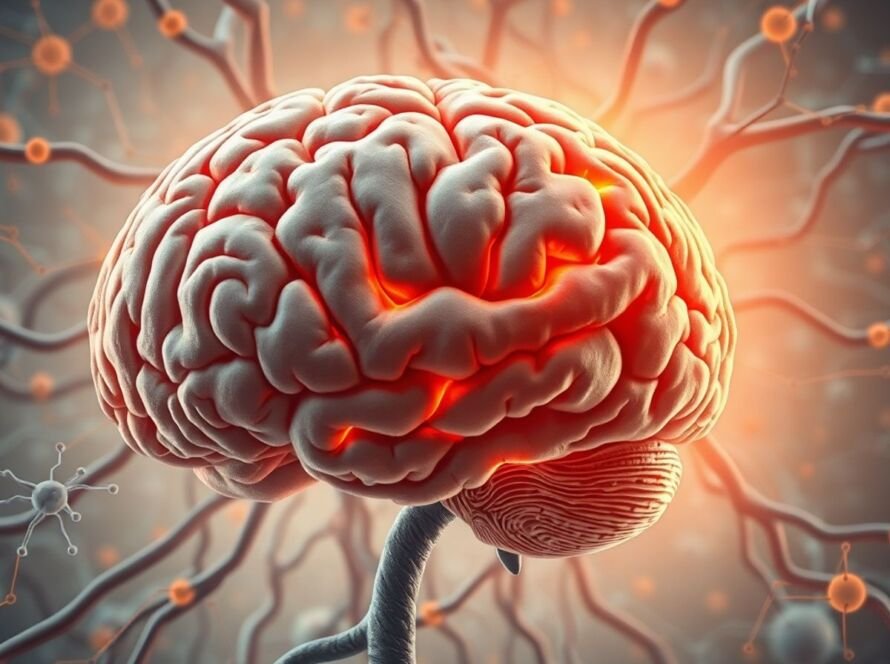A recent study has revealed that SARS-CoV-2, the virus responsible for COVID-19, can infect dopamine neurons in the brain. This unexpected discovery may explain some of the neurological symptoms associated with long COVID, such as brain fog and depression.
Key Takeaways
- SARS-CoV-2 can infect approximately 5% of dopamine neurons, leading to senescence and inflammation.
- The study used human stem cells to generate various cell types and found that only dopamine neurons activated the senescence pathway upon infection.
- Three drugs—riluzole, metformin, and imatinib—were identified as potential protectors against SARS-CoV-2 infection in dopamine neurons.
The Unexpected Discovery
Researchers from Weill Cornell Medicine, Memorial Sloan Kettering Cancer Center, and Columbia University Vagelos College of Physicians and Surgeons found that SARS-CoV-2 can infect dopamine neurons, causing them to enter a state of senescence. This state, where cells lose the ability to grow and divide, leads to inflammation and may contribute to long COVID symptoms like brain fog, lethargy, and depression.
How the Study Was Conducted
The study initially aimed to understand how different cell types respond to SARS-CoV-2. Researchers used human stem cells to generate various cell types, including lung cells, heart cells, and pancreatic beta cells. Surprisingly, they found that only dopamine neurons activated the senescence pathway upon infection.
Impact on Dopamine Neurons
Dopamine neurons are crucial for producing dopamine, a neurotransmitter that plays a role in pleasure, motivation, memory, sleep, and movement. Damage to these neurons is also connected to Parkinson’s disease. The study found that approximately 5% of dopamine neurons exposed to SARS-CoV-2 were infected. Although this infection rate is lower than that of lung cells, even a small population of infected dopamine neurons can have severe effects.
Protecting Dopamine Neurons
The researchers used transcriptional profiling to identify how SARS-CoV-2 infection modified gene activity in dopamine neurons. They discovered that only dopamine cells had the senescence pathway activated. The gene signatures from the infected lab-grown dopamine neurons matched those from COVID-19 autopsy samples, including genes that triggered inflammation.
Potential Treatments
The researchers tested various drugs already on the market to find one that could either prevent SARS-CoV-2 infection or rescue infected dopamine neurons from senescence. They identified three drugs—riluzole (used to treat ALS), metformin (used to treat diabetes), and imatinib (used to treat cancer)—that blocked SARS-CoV-2 infection and prevented dopamine cells from entering senescence.
Future Implications
While the clinical relevance of these findings is still unclear, the researchers suggest that long COVID patients should be monitored for an increased risk of developing Parkinson’s-related symptoms. Further studies are needed to explore the long-term neurological effects of COVID-19 and the potential protective effects of the identified drugs.
Sources
- COVID-19 May Infect Dopamine Neurons – Neuroscience News, Neuroscience News.
